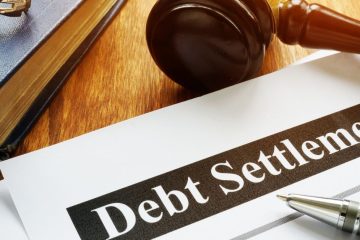The Problem: Revenue Canada and Unfiled Returns
A substantial percentage of the problems that Licensed Insolvency Trustees are presented with stem from debts that people owe Canada Revenue Agency (often referred to as Revenue Canada.)
Frequently, taxpayers have unfiled tax returns because they fear that there will be substantial taxes owing, and they have no way of paying those taxes. The good news is that tax debt, together with penalties and interest (often a large component of the debt) can be eliminated through a Bankruptcy or Consumer Proposal. That is, if the unfiled returns are dealt with before Revenue Canada takes extreme action.
In the long term, if not dealt with, unfiled tax returns can create bigger problems that are much more difficult to solve than just the tax debt itself.
When the situation goes on too long, a chronic non-filer can be charged by Revenue Canada with income tax evasion, which is a criminal matter and can result in fines, imprisonment or both being imposed by a court. If this happens, the taxes owing can be discharged through a Bankruptcy or Consumer Proposal, but the penalty imposed by the court will still stand, to be dealt with when the bankruptcy or proposal is complete.
Our Licensed Insolvency Trustee, Bonnie Hooley discusses the CRA and tax debt in this podcast, a must-listen if you are wondering if you can just ignore your tax problems.
How Does This Happen?
The majority of taxpayers work for someone else, be it a business, an agency or a government department. They receive salaries or hourly pay cheques. Deductions for taxes are done by the employer and a T4 slip is issued at the end of each year. In this way, taxes are “prepaid” to Revenue Canada by the deductions taken throughout the year. In this situation, most people will not have a substantial tax bill when they file their return. It is more likely that Revenue Canada will end up giving some of their money back — that annual tax refund that everyone looks forward to.
However, it is still possible for people who have regular deductions made to fall into tax debt as a result of changes in their situation. A change in family deductions can raise your taxes. This would include things like a child moving away from home, or a dependent spouse getting employment. Getting a second job can also result in taxes owing at the end of the year. In this case, even with both employers taking regular tax deductions, the combined income from the two jobs may raise your tax bracket with Revenue Canada. That will not be automatically reflected in the deductions that either employer makes.
If there are changes in your family or employment situation, it is important to let your employer know as soon as possible, so that they can adjust the tax deductions being made. You can always ask them to deduct extra taxes from your salary if you have had a change in your situation.
Cashing in an RRSP will usually add to tax debt. When you cash in an RRSP, tax is deducted. However, the minimum is deducted. When you file your year-end return, and Revenue Canada calculates what you owe based on all of your income, including the RRSP, you will likely find that you have a sizeable tax debt. Again, it is possible to avoid this by having the financial institution that holds your RRSP deduct a greater amount, or by saving some of the funds from the cashed in RRSP to settle the tax debt that is likely to result from cashing it in.
Unfiled Returns and the Self-Employed
By far, the group of people who most often struggle with tax debt are the self-employed. Because they are not salaried, monthly tax deductions are not made. Revenue Canada will usually ask small business owners to make quarterly tax installments. These can often be quite onerous for the small business person who is dealing with seasonal changes in income, or whose cash flow is interrupted by the need to replace equipment, hire additional staff, etc. Some seemingly very successful businesses get into tax debt by delaying their quarterly installments.
For a self-employed person, the actual filing of the tax return is no simple thing. Even if their books and records have been kept in immaculate condition (this is very rare), it takes substantial time to prepare financial statements and file returns. Most self employed people are so busy with their trade, that it is difficult to take time out for filing tax returns. Add to this the knowledge that substantial tax is likely to be owed, and it is understandable why some self-employed people can leave unfiled returns for months, if not years.
Another area that carries even greater long-term risk for the self-employed, is that of payroll taxes. If cash flow prevents a small business person from sending Revenue Canada the tax, EI and CPP deductions from their employees, this is very serious. These deductions are called “trust funds”, and the consequences of not paying them can be quite severe.
Many self employed people, who have great skills in their trade, do not have the training, time, or aptitude to manage the record keeping, billing, payroll and bill payments of their small business. It may seem like just an extra expense, but it is vital to have someone on staff who can take care of that “accounting” end of the business.
What Can Revenue Canada Do?
Unfiled tax returns will result in arbitrary assessments being made by Revenue Canada. Worse yet, these tax assessments can result in garnishment, seizure of property and bank accounts, even criminal charges.
Revenue Canada wants you to do something about the problem. If you can’t pay your tax debt, speak to a Licensed insolvency Trustee (LIT). This problem will not go away. It will only get worse until it is dealt with.
One of the reasons we often hear for non-filing of tax returns is, “I don’t know how to file, and I can’t afford an accountant.” As true as this may be, Revenue Canada will not accept that excuse. It is important not to ignore the situation.
A consultation with LCTaylor is free, and the LIT’s there can provide you with options and solutions to deal with your unfiled returns. Give us a call today.
















